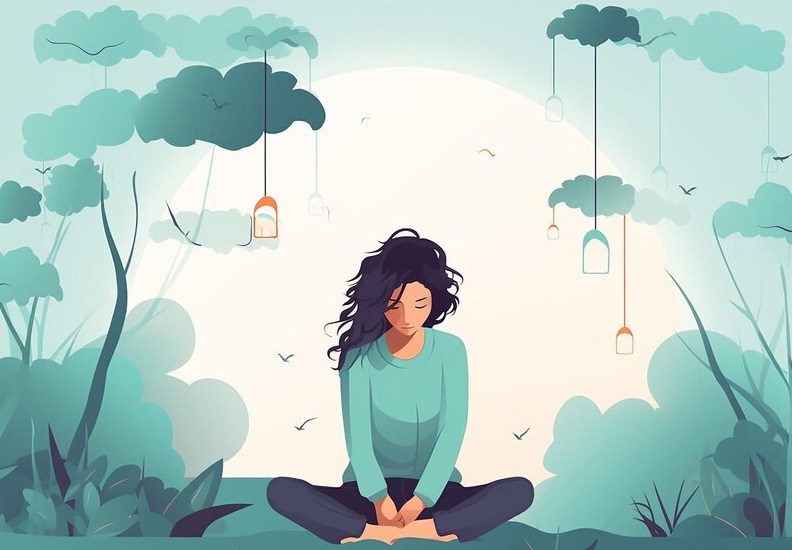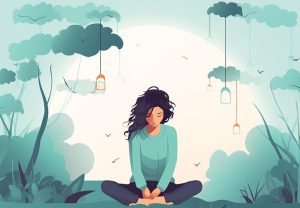
A Guide For Mental Health Self-Care Tips | Karma Docs
Self-care means taking care of oneself. Self-care is everything you do to put your physical, mental, emotional, and spiritual well-being first. It might be difficult to maintain mental health, but when self-care becomes a habit, you give yourself the benefit and edge you need to succeed. You may also consult experts offering psychiatric treatment to recover from mental stress.
Let’s get started and discover more about mental health self-care activities.
Why is Self-Care Important?
Self-care is essential to your mental health as it can offer you the resources you need to avoid exhaustion and enhance your ability to handle stress and anxiety in the long run. It’s critical to remember that maintaining your mental health involves more than just doing what makes you feel better at the moment. Self-care is a preventive action that aims towards behavioral & psychiatric wellness.
How to Practice Self-Care?
Developing self-care as a habit is the most efficient method to do it. Whether you’re experiencing a crisis related to your mental health or something else entirely, it’s never a smart idea to put off self-care for a later period.
We advise incorporating self-care into your daily schedule. You could even go so far as to make self-care appointments with psychiatry and counseling experts. Establish a weekly time slot, for instance, to disconnect from electronics and read books, go outside, or spend time with loved ones.
We’ve listed a few particular mental health self-care activities below.
Sleep
To remain healthy and perform our best, both physically and intellectually, we all need enough good sleep. Just 33% of Americans receive the recommended amount of sleep, according to the Centers for Disease Control (CDC).
You can have mood swings and irritability if you don’t get enough sleep. It is easier to maintain our emotional and mental equilibrium when we get enough sleep. According to the National Sleep Foundation, adults typically require seven to nine hours of sleep every night.
Furthermore, when you need a fast recharge, think about treating yourself to a nap. When you need to clear your head and rejuvenate taking a 20–30 minute power nap is ideal. Find a place that is peaceful and free of interruptions if you want to nap. You could doze off on a chair in your living room, lay down in bed, or even rest your head on your desk and do this.
Breathing Exercises
Breathing techniques are one approach to relax and recover. By focusing on each inhalation and exhalation, conscious breathing helps you become more aware of your breathing.
To start breathing consciously, take the following actions:
- Sit or lie down in a cosy position.
- Shut your eyes and begin breathing while focusing on each breath.
- Breathe in, hold it for five seconds, and then release the breath.
- Observe your breath as it enters and exits your body throughout each inhalation and exhalation.
- Say “in” when you take a breath and “out” when you release it.
- If it helps, add a mantra to assist you in paying attention to your breath.
Exercise
Exercising regularly is associated with stronger bodies and happier minds. Engaging in physical activity lowers the risk of age-related mental disorders, enhances focus, and reduces stress.
According to the National Institute of Mental Health, taking a daily 30-minute walk can enhance your well-being and elevate your emotional state. Walking for shorter durations adds up to the same outcome even if you are unable to walk for thirty minutes at a time. Low-impact workouts like yoga are useful for self-care in addition to walking.
Mindfulness and Meditation
Being mindful simply means paying attention to and being aware of your body, thoughts, and surroundings in the current now. Not to mention, mindfulness helps you sustain the progress you achieve in practising self-care for your mental health. It also helps you live a balanced life.
Developing and keeping up a meditation practice is one technique to reach mindfulness. Remember these seven mindfulness pillars as you meditate:
- Non-judgment: Notice your thoughts as they come to you, but refrain from passing judgment on them. Just give them your acknowledgement.
- Have patience: Everything will become clear when it’s meant to be. Treat yourself with the same patience that you do with other people.
- Beginner’s mind: View the world with a clear, uncluttered mind. Refrain from letting expectations, beliefs, and experiences from the past prevent you from seeing things as they are in the present moment.

- Trust: Have faith in your emotions and in yourself. While mistakes are inevitable in life, seeking guidance from inside and having faith in your instincts can be helpful.
- Non-striving: Most of the time, we start life with plans and objectives. However, the whole point of mindfulness and meditation is to concentrate on accepting things as they are in the present moment. Seize the opportunity and concentrate on “non-doing.”
- Acceptance: You become more conscious of what you’re going through at any particular time when you accept things the way they are without trying to change them.
- Letting go: This relates to not passing judgment. You may notice that your mind strives to cling to certain thoughts while you pay attention to your thoughts and inner experiences. Instead of getting hung up on passing judgment on them, try to let them go and accept them for who they are.
When you take the time to meditate when you’re anxious, anxiety can be swiftly reduced and a more positive mental state can be restored. Nonetheless, maintaining a regular meditation practice aids in keeping you on course. To help meditation become a regular part of your day, try to meditate at the same time every day.
Tracking Self-Care for Good Mental Health
You can improve your level of personal effectiveness and healthy living now that you are knowledgeable about some fantastic mental health self-care activities. Tracking has a crucial role to play in enhancing mental wellness. At Karma Doctors & Associates, we have renowned psychiatrists California, who can guide you towards the path to recovery, if you are struggling with mental health. We also prescribe medications to eliminate your mood disorders.
Get in touch with us now for better mental health.

